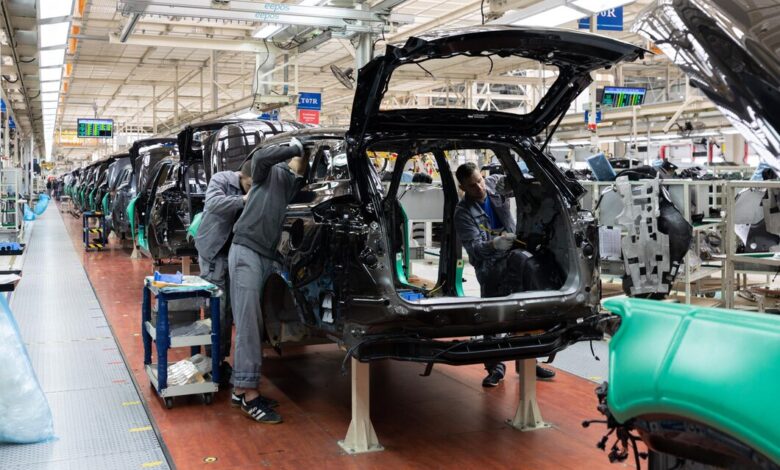20 Unwritten Rules About the Automotive Industry

The automotive industry is a massive and highly competitive sector that drives much of the global economy. While there are formal regulations and guidelines in place, there are also numerous unwritten rules that professionals in this industry follow to ensure smooth operations, maintain customer satisfaction, and stay ahead of the competition. Whether you’re an engineer, sales associate, or mechanic, here are 20 unwritten rules about the automotive industry that everyone should know.
1. Always Keep Up With Technology
The automotive industry evolves rapidly with new technologies, from electric vehicles (EVs) to autonomous driving features. Staying updated with the latest tech trends and innovations is crucial for remaining competitive and relevant in the market.
2. Customer Feedback is Golden
In any aspect of the automotive industry—whether it’s vehicle design, marketing, or sales—customer feedback plays a pivotal role in shaping products and services. Pay close attention to customer reviews and complaints to improve quality and performance.
3. Quality is Non-Negotiable
Regardless of the brand, quality should never be compromised. Whether designing a vehicle, manufacturing parts, or servicing a car, the standard of quality must always be maintained. Reputation in the automotive industry is built on reliability and durability.
4. Never Overpromise and Under-Deliver
In sales and marketing, it’s tempting to hype up a product to make a sale, but over-promising and under-delivering can ruin a company’s reputation. Always ensure that what you’re advertising is aligned with what the product can actually do.
5. Don’t Ignore the After-Sales Service
Many customers gauge their experience based not only on the initial sale but also on the level of service and support they receive afterward. Providing exceptional after-sales support, such as maintenance and warranties, is crucial for building long-term customer loyalty.
6. Keep Things Efficient
The automotive industry thrives on efficiency, whether it’s in manufacturing, assembly lines, or logistics. Any delays or inefficiencies in the production chain can lead to significant cost overruns and missed opportunities, so always prioritize optimizing processes.
7. Stay Informed About Regulations
Automotive regulations vary by region and often change over time. Whether it’s emissions standards, safety regulations, or import/export restrictions, it’s essential to stay informed and ensure that products meet all legal requirements.
8. Never Compromise on Safety
Automobile safety should always be a top priority, not just for consumers but also for manufacturers. This includes ensuring vehicles meet safety standards and adhering to ethical practices in testing and reporting safety features.
9. Embrace Sustainability
Sustainability is becoming an increasingly important factor in the automotive industry. Whether it’s developing electric vehicles, reducing waste in manufacturing, or implementing greener technologies, sustainability is no longer just a trend—it’s a necessity.
10. Pay Attention to Market Trends
The automotive industry is influenced by many external factors, such as economic shifts, consumer preferences, and geopolitical issues. It’s important to stay aware of these trends to predict what vehicles will be in demand and adjust your strategies accordingly.
11. Know the Customer’s Needs
Understanding what customers want and need from their vehicles can help drive better sales. Focus on the practical aspects like fuel efficiency, ease of use, or luxury features based on your target audience’s preferences.
12. Make Relationships a Priority
In the automotive industry, relationships with suppliers, manufacturers, dealerships, and even competitors are essential. Networking, maintaining good business relationships, and fostering trust can lead to better collaboration and long-term success.
13. Adapt to Change
The automotive industry is constantly changing, from new vehicle types (e.g., electric vehicles, hybrids) to emerging business models like car-sharing. The ability to adapt to these changes is a key factor for survival in this competitive environment.
14. Don’t Underestimate the Power of Design
The design of a vehicle, including aesthetics and user experience, can have a profound impact on its success. A well-designed car or feature can attract customers and set a brand apart in a crowded marketplace.
15. Test Before You Sell
Before selling any new vehicle or component, ensure it’s thoroughly tested under a variety of conditions. This ensures the product performs as expected and helps prevent recalls, which can be costly and damage brand reputation.
16. Work in Teams
Collaboration is crucial in the automotive industry. From design teams to manufacturing, engineering, and marketing, success is built on the ability to work seamlessly across different departments. Teamwork drives innovation and problem-solving.
17. Keep an Eye on the Competition
In an industry as competitive as automotive, always know what your competitors are doing. Whether it’s launching new models, implementing new technologies, or adjusting pricing strategies, understanding the competition allows you to make informed business decisions.
18. Be Transparent
Transparency in pricing, manufacturing processes, and even corporate practices is essential to building trust with customers and business partners. Avoid hidden fees and be honest about the capabilities of your products.
19. Respect the Timeline
Whether it’s the release of a new car model or a scheduled repair, respecting timelines is crucial in the automotive world. Delays can lead to missed sales opportunities, dissatisfied customers, and lost business.
20. Know When to Innovate and When to Stick With Tradition
Innovation is important, but there are times when sticking with proven, traditional methods is the best choice. Whether it’s maintaining certain models that customers still love or following time-tested manufacturing techniques, balance is key.
The automotive industry is complex and constantly evolving, but these unwritten rules provide a solid foundation for anyone working in or with this sector. Whether you’re developing a new vehicle, running a dealership, or working in marketing, understanding these informal guidelines can help you navigate the industry successfully, foster positive relationships, and keep your business thriving. By adhering to these rules, you can ensure that you’re part of an industry that continues to innovate, deliver quality products, and meet the needs of an ever-changing global market.




